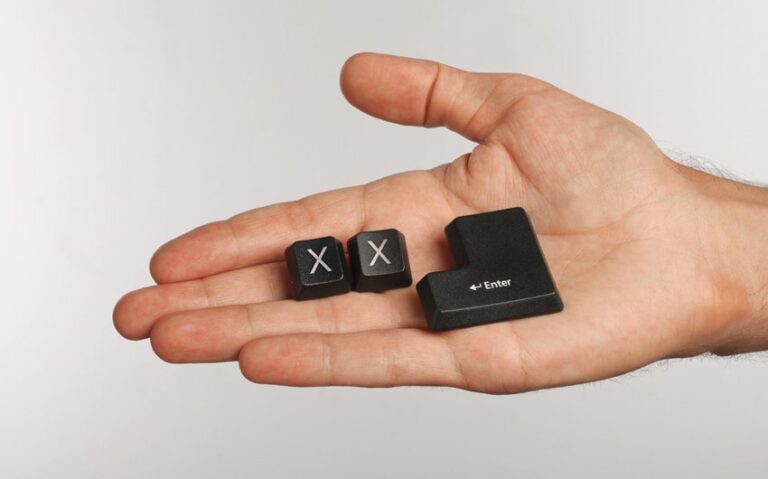Low-Key Meaning in Text: A Guide for Everyday Conversations
Sometimes, we like to express our feelings or opinions without making a big deal out of it. That’s where “low-key” comes in. Whether you’re texting a friend about your weekend plans or commenting on something you secretly enjoy, “low-key” adds a subtle tone to your words. It helps keep things casual and lets people know you’re not overdoing it.
When used in texting, it means something like “a little bit” or “in a subtle way.” This article will dive into the low-key meaning in text and how it’s used in everyday conversations.
What Does Low-Key Mean?

“Low-key” is a term often used to describe something that is subtle, understated, or not overly emphasized. In the context of everyday conversations, it’s a way to express feelings or desires without making a big deal out of them. For example, if someone says, “I low-key want to stay home tonight,” they’re signaling that the desire exists, but it’s not a strong or pressing feeling. It’s a casual, almost reserved way of communicating something without drawing too much attention.
In texting, “low-key” plays a similar role. It softens the statement and makes it feel more laid-back. When people use it in messages, they are often trying to express a moderate level of interest or excitement. For instance, someone texting, “That party was low-key fun,” means they found the event enjoyable, but in a chill, relaxed way, rather than something that was highly thrilling or exciting.
Overall, the term helps convey a sense of being easygoing and unbothered, making it perfect for informal communication. Whether you’re feeling something mildly or want to avoid coming across as too intense, “low-key” is a handy phrase to use.
Origin of Low-Key: Where Did It Come From?
The term “low-key” has an interesting history that stretches back to its roots in music. Originally, it was used to describe something literal—musical tones that were soft or not too intense. A “low key” in music refers to a tone or note that is quieter or more subdued compared to others, providing a sense of calmness or understatement in a composition.
Over time, this musical term found its way into everyday language, where it maintained the idea of subtlety or restraint. Instead of referring to musical notes, it started to be used metaphorically in the context of behaviors, emotions, or situations. For example, a “low-key” event might describe a small, intimate gathering without much fanfare or excitement, emphasizing its relaxed and laid-back nature.
In more recent years, particularly with the rise of casual texting and social media, “low-key” evolved further into modern slang. It’s now commonly used in informal conversations to express a mild or understated feeling, desire, or opinion.
For instance, someone might say, “I’m low-key excited about the new movie,” meaning they’re excited but not over-the-top about it. The term has gained popularity for its versatility in conveying both emotions and situations without sounding overly dramatic or intense.
As language continues to evolve, “low-key” has cemented itself as part of everyday slang, used across different age groups and social contexts. Its meaning remains rooted in subtlety and understatement, making it a perfect fit for the relaxed tone often found in texting.
How “Low-Key” Is Used in Texting

In texting, “low-key” is a versatile phrase that allows people to express thoughts, feelings, or desires in a subtle or understated way. It softens the tone of a statement, making it seem casual and relaxed, which is ideal for informal communication.
1. Expressing Mild Feelings or Desires
When someone uses “low-key” in a text, they’re often trying to convey that they feel a certain way, but not strongly enough to make a big deal out of it. It allows the person to share their emotions or desires in a more understated manner, suggesting that while the feeling is present, it’s not overwhelming.
For instance, saying “I’m low-key tired” means that the person feels tired, but not so much that it’s a major issue. Similarly, “I low-key want to stay home tonight” suggests a preference for staying in, but without a strong push to do so. For example:
- “I’m low-key tired.”
- “I low-key want to stay home tonight.”
2. Showing Hidden or Moderate Excitement
“Low-key” is also frequently used to express a mild or hidden excitement. It’s a way for someone to acknowledge their interest or anticipation while downplaying it at the same time. This is especially useful in casual conversations where someone might not want to come across as overly eager or dramatic. For example, when someone says “I’m low-key excited for the weekend,” they’re signaling that they’re looking forward to it, but in a relaxed, not over-the-top way. For example:
- “I’m low-key excited for the weekend.”
- “That party was low-key fun.”
3. Making Casual Confessions
Sometimes, people use “low-key” to admit to something they might not openly express otherwise. It serves as a way to confess a preference or feeling without sounding too serious about it, almost like a quiet admission. When someone says, “I low-key love cheesy romantic movies,” they’re revealing a personal interest, but in a way that’s intentionally downplayed. This use of “low-key” helps keep the conversation light while sharing something potentially personal. For example:
- “I low-key love cheesy romantic movies.”
- “I’m low-key obsessed with this song.”
4. Maintaining a Laid-Back Tone
In general, using “low-key” in texting helps maintain an easygoing, informal tone. It’s perfect for moments when you want to express something without sounding too intense or overly invested. By using “low-key,” texters can share their thoughts or feelings in a way that feels casual and not too serious, making it a great tool for everyday conversations.
Other Slang Words Similar to Low-Key
While “low-key” is a popular term for conveying subtlety or understatement, several other slang words also capture a similar tone in casual conversations. These terms are frequently used to communicate feelings or attitudes in a relaxed, easygoing way, much like “low-key.”
1. Chill
“Chill” is frequently used to describe something that is laid-back or relaxed. It suggests a sense of calm and ease, without any extreme emotions or excitement. For instance, someone might say, “I had a chill weekend,” meaning it was enjoyable but in a relaxed, low-energy way, similar to the subtle nature of “low-key.”
2. Subtle
“Subtle” refers to something that is not obvious or is low-profile. It implies that a feeling or action is present but expressed in a more delicate, restrained way. For example, someone might say, “That was a subtle hint,” meaning the hint was given quietly, without drawing much attention, much like the understated vibe of “low-key.”
3. Casual
“Casual” describes something informal or without serious commitment. It signals a laid-back approach, whether in relationships, feelings, or events, aligning with the relaxed tone of “low-key.” For example, “We’re just having a casual get-together” conveys the same sense of ease and informality as a “low-key” event.
4. Laid-Back
“Laid-back” refers to a relaxed, easygoing attitude. It implies a lack of stress or urgency, often used to describe a person’s demeanor or a situation. For instance, someone might say, “He’s pretty laid-back about deadlines,” which has a similar tone to someone who is “low-key” about their approach.
5. Mellow
“Mellow” describes a calm and peaceful mood or atmosphere. It’s often used to convey a lack of intensity, whether describing a person’s personality or an environment. For example, “The party was pretty mellow” suggests a relaxed, quiet vibe, much like a “low-key” event.
6. Understated
“Understated” is a term that describes something kept intentionally low-profile or not overdone. It applies to actions, feelings, or even fashion choices, where subtlety is key. For example, “Her outfit was understated, but elegant,” mirrors the quiet yet impactful nature of something described as “low-key.”







